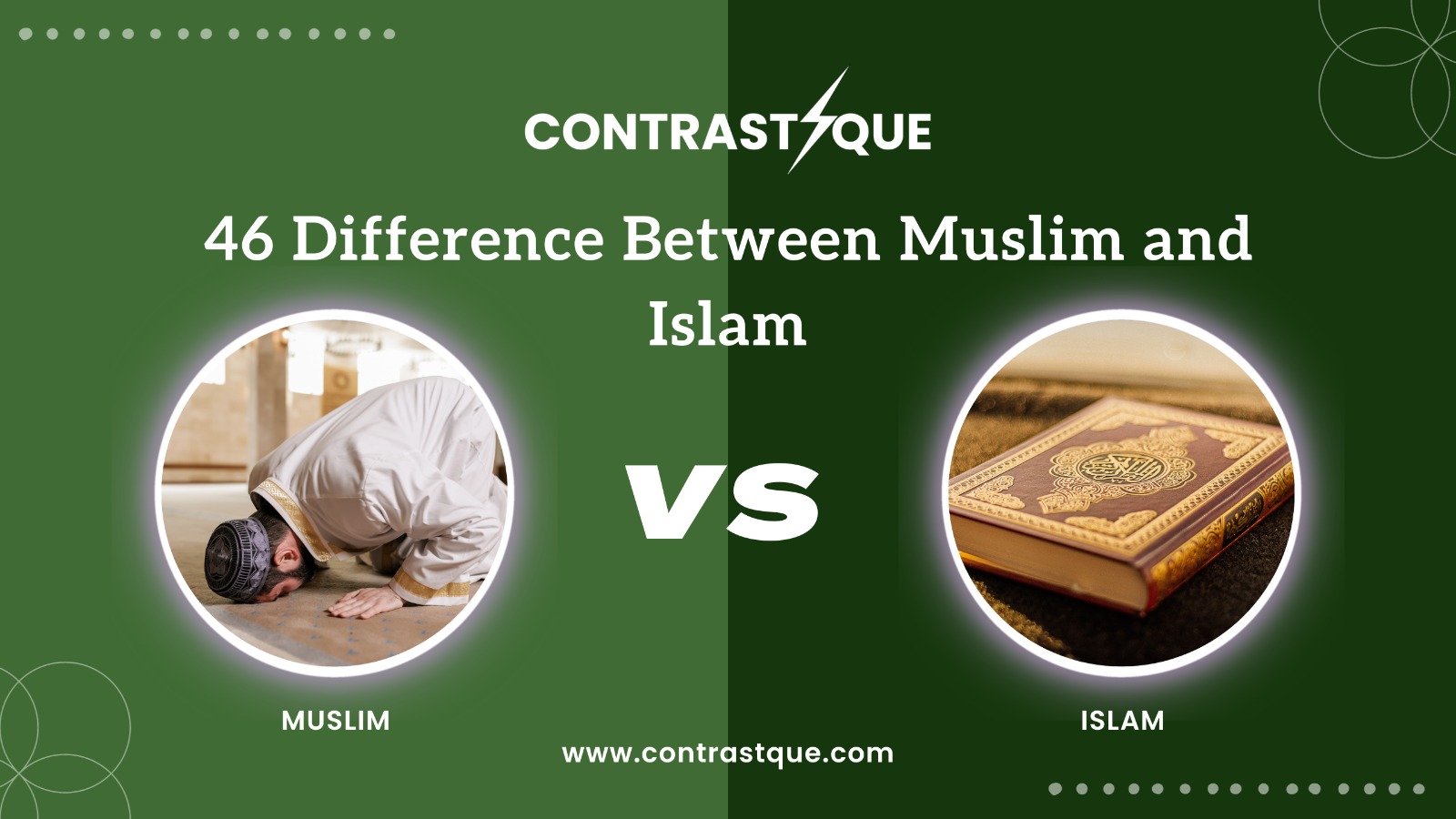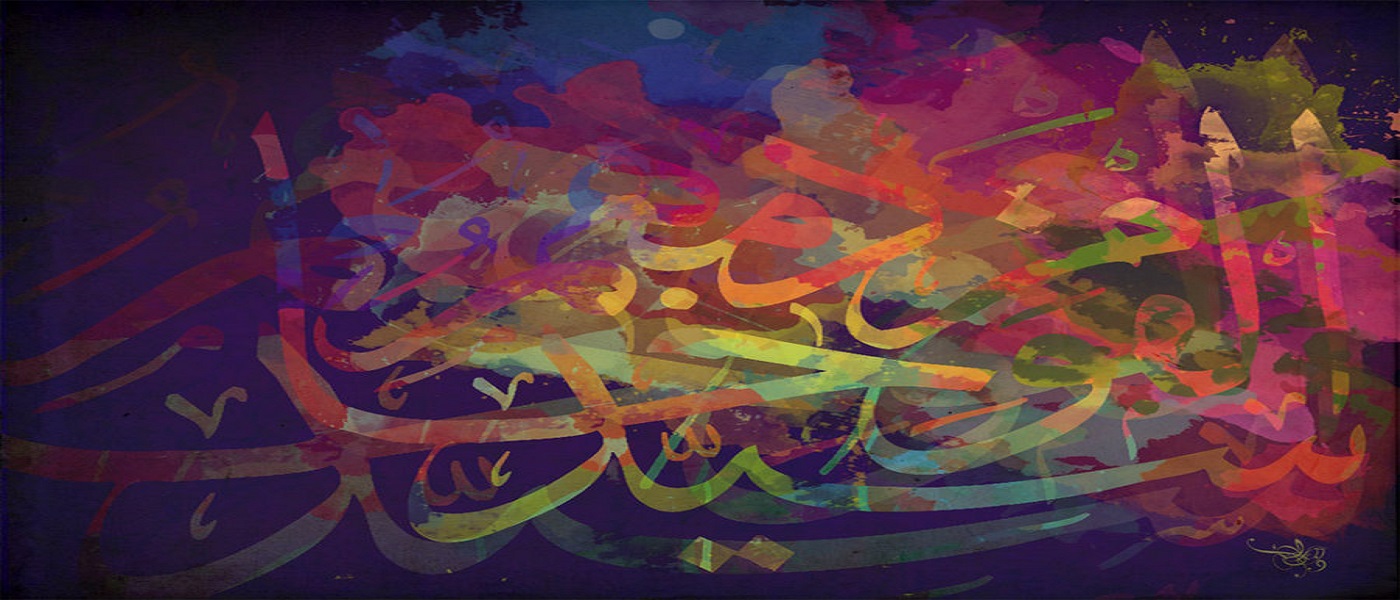Many people use the terms "Islam" and "Muslim" interchangeably, but these words have distinct meanings that are important to understand. Islam refers to the religion itself, while Muslim describes an individual who follows the Islamic faith. Understanding the difference between these terms can help foster greater cultural awareness and mutual respect in our increasingly interconnected world.
Islam is one of the world's major religions, with over 1.9 billion adherents globally. It is based on the teachings of the Quran and the example of the Prophet Muhammad. The religion provides a comprehensive framework for life, encompassing spiritual, social, and ethical guidelines.
On the other hand, Muslims are individuals who practice the Islamic faith. They strive to live according to the principles of Islam, engaging in acts of worship, charity, and community service. By understanding the distinction between Islam and Muslim, we can appreciate the nuances of this rich and diverse tradition.
Read also:Satya Nadella The Visionary Leader Revolutionizing Microsoft
Table of Contents
- Defining Islam: The Religion
- Understanding Muslims: The Followers
- Core Beliefs of Islam
- Practices of Muslims
- Historical Perspective on Islam and Muslims
- Common Misconceptions About Islam and Muslims
- Cultural Diversity Among Muslims
- Islam in the Modern World
- Interfaith Dialogue: Bridging Differences
- Conclusion: Embracing Understanding
Defining Islam: The Religion
Islam is a monotheistic religion centered on the belief in one God, Allah, and the teachings of the Prophet Muhammad. The word "Islam" means "submission" or "surrender" to the will of God. This religion is guided by the Quran, which Muslims believe to be the literal word of God revealed to the Prophet Muhammad over 1,400 years ago.
Islam encompasses a wide range of beliefs and practices that guide every aspect of life. It emphasizes the importance of faith, prayer, charity, and community. The Five Pillars of Islam serve as the foundation of the religion, outlining the core obligations for all Muslims.
Key Aspects of Islam
- Belief in one God (Tawhid)
- Prophethood of Muhammad
- Guidance from the Quran
- Five Pillars of Islam
- Day of Judgment and Afterlife
Understanding Muslims: The Followers
Muslims are individuals who adhere to the Islamic faith. They strive to live according to the teachings of the Quran and the Sunnah (the example of the Prophet Muhammad). Muslims come from diverse backgrounds and cultures, united by their shared belief in Islam.
The global Muslim population is estimated at over 1.9 billion, making it the second-largest religious group in the world. Muslims live in nearly every country, with significant populations in the Middle East, South Asia, Southeast Asia, Africa, Europe, and North America.
Characteristics of Muslims
- Practicing daily prayers (Salah)
- Observing Ramadan and fasting
- Performing the Hajj pilgrimage
- Giving alms (Zakat)
- Reciting the Shahada (Islamic creed)
Core Beliefs of Islam
The core beliefs of Islam revolve around the oneness of God (Tawhid) and the prophethood of Muhammad. Muslims believe in the existence of angels, the revelation of sacred scriptures, the Day of Judgment, and the importance of living a righteous life.
One of the most fundamental tenets of Islam is the Shahada, the declaration of faith: "There is no god but Allah, and Muhammad is His messenger." This affirmation is central to the Islamic identity and serves as the foundation of the religion.
Read also:Frau Von Lars Eidinger Unveiling The Life And Legacy Of A Remarkable Woman
Key Beliefs in Islam
- Belief in one God (Tawhid)
- Prophethood of Muhammad
- Existence of angels
- Revelation of sacred scriptures
- Day of Judgment
Practices of Muslims
Muslims engage in a variety of religious practices that reflect their commitment to Islam. These practices are guided by the Five Pillars of Islam, which include the declaration of faith (Shahada), daily prayers (Salah), fasting during Ramadan (Sawm), giving alms (Zakat), and performing the Hajj pilgrimage.
These practices are not only spiritual but also social and ethical, fostering a sense of community and responsibility among Muslims. They serve as reminders of the importance of faith, compassion, and service to others.
Five Pillars of Islam
- Shahada: Declaration of faith
- Salah: Daily prayers
- Zakat: Giving alms
- Sawm: Fasting during Ramadan
- Hajj: Pilgrimage to Mecca
Historical Perspective on Islam and Muslims
The history of Islam dates back to the early 7th century when the Prophet Muhammad received the first revelation of the Quran in Mecca. Over the centuries, Islam spread rapidly across the Arabian Peninsula, the Middle East, North Africa, and beyond.
Muslims have made significant contributions to science, philosophy, art, and culture throughout history. The Islamic Golden Age, which lasted from the 8th to the 14th century, was a period of remarkable intellectual and cultural flourishing.
Key Historical Milestones
- 610 CE: First revelation of the Quran
- 622 CE: Hijra (migration to Medina)
- 632 CE: Death of the Prophet Muhammad
- 7th-14th century: Islamic Golden Age
Common Misconceptions About Islam and Muslims
There are several misconceptions about Islam and Muslims that persist in popular culture. These misconceptions often stem from a lack of understanding or exposure to the true teachings of the religion. It is important to address these myths to promote greater understanding and tolerance.
One common misconception is that Islam promotes violence or extremism. In reality, the vast majority of Muslims are peaceful and practice their faith in moderation. Another misconception is that women in Islam are oppressed, whereas the religion emphasizes equality and respect for women.
Addressing Misconceptions
- Islam does not promote violence
- Women in Islam have rights and protections
- Not all Muslims are Arabs
- Sharia law is diverse and context-dependent
Cultural Diversity Among Muslims
Muslims come from a wide variety of cultural and ethnic backgrounds, reflecting the global nature of the Islamic faith. This diversity enriches the Muslim community and highlights the universality of Islam.
From the colorful traditions of Southeast Asia to the vibrant cultures of Africa, Muslims celebrate their unique identities while maintaining their shared Islamic values. This cultural diversity is a testament to the inclusive nature of the religion.
Examples of Cultural Diversity
- Indonesian Muslims
- African Muslims
- South Asian Muslims
- European Muslims
Islam in the Modern World
In today's globalized world, Islam continues to play a significant role in shaping the lives of its adherents. Muslims navigate the challenges of modernity while remaining faithful to their religious principles.
The rise of technology and social media has provided new opportunities for Muslims to connect, learn, and share their experiences. At the same time, these platforms have also been used to spread misinformation and stereotypes about Islam and Muslims.
Modern Challenges and Opportunities
- Technology and social media
- Interfaith dialogue
- Addressing stereotypes
- Promoting peace and understanding
Interfaith Dialogue: Bridging Differences
Interfaith dialogue is an essential tool for fostering mutual understanding and respect between people of different faiths. By engaging in open and honest conversations, Muslims and non-Muslims can break down barriers and build bridges of friendship.
Many organizations and initiatives around the world are dedicated to promoting interfaith dialogue and cooperation. These efforts focus on shared values such as compassion, justice, and peace, highlighting the commonalities between different religious traditions.
Benefits of Interfaith Dialogue
- Promoting mutual understanding
- Building trust and cooperation
- Addressing stereotypes and prejudices
- Encouraging peaceful coexistence
Conclusion: Embracing Understanding
Understanding the difference between Islam and Muslim is crucial for fostering greater cultural awareness and respect. Islam is a rich and diverse religion with a long history and profound teachings, while Muslims are the individuals who practice this faith. By appreciating the nuances of these terms, we can build bridges of understanding and promote peace in our communities.
We invite you to share your thoughts and questions in the comments below. Engaging in respectful dialogue is an important step toward building a more inclusive and compassionate world. For more articles on religion, culture, and global issues, explore our website and stay informed.
Sources:
- Pew Research Center. (2017). The Future of World Religions: Population Growth Projections, 2010-2050.
- United Nations. (2021). World Population Prospects 2019.
- Encyclopedia Britannica. (2022). Islam.


